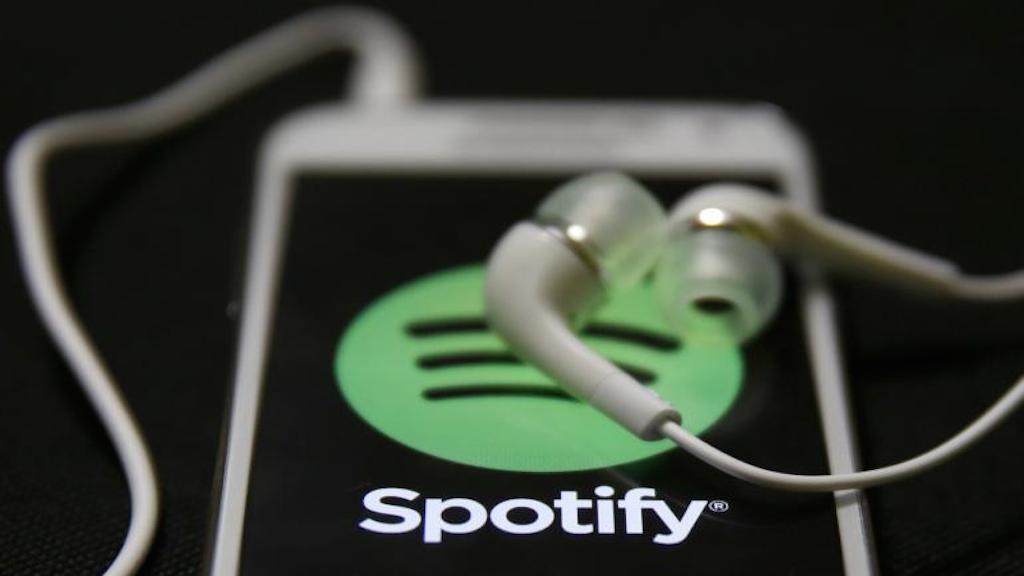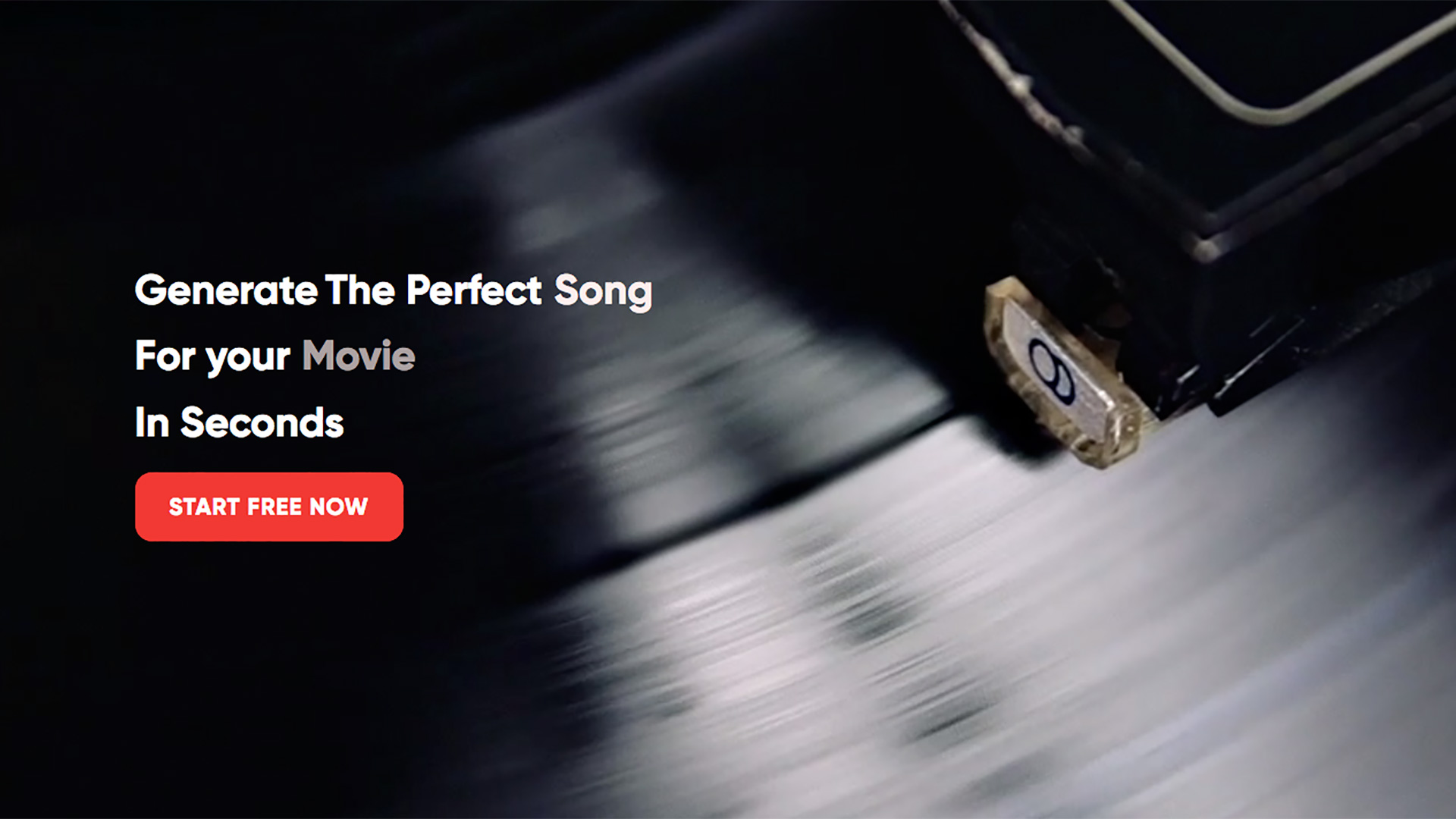Is music tech short-changing songwriters?
Money too tight to mention

In a broad sense, music has a lot to thank technology for. There’s recorded sound, the amplifier and, more recently, the democratizing effect of all that affordable home studio gear that lets just about anyone have a crack at making an album. All were important tech milestones in the dissemination and creation of music.
However, right now there are some sticky technology-related issues that are impacting songwriters and performers, and we heard about some of them at the Vill Vill Vest festival in Bergen, Norway.
Vill Vill Vest is predominantly a music festival that showcases Norway’s new and unsigned acts. But a conference is bolted on, and it features talks from some of the latest music tech startups, and speakers tuned into the current state of the music industry.
Streaming services vs musicians
One talk, on the mechanics of how artists are paid through streaming services, raised the question, for me at least, of the ethics of using Spotify. As someone who spent their teenage years downloading songs from Napster, and bought into digital music fairly early with a Creative DAP Jukebox 6GB, one of the first hard drive MP4 players, I claim no moral high ground here. But in certain ways the system is stacked against songwriters in particular.
For one of the leading lights of contemporary music tech, the way in which Spotify’s artist payments seem archaic.
“Every month [Spotify sends] every publisher, and every collections society it has a relationship with, a spreadsheet of every track that was streamed. They can go through that spreadsheet, line by line,” says Chris Cooke of CMU Insights, who has written a book on this very subject, Dissecting The Digital Dollar.
The task of working out who the rights-holders are for the billions of listens accrued on Spotify is offloaded to those publishers and collections societies, because while Spotify can tell the performer of the song by the name on the tin, judging the songwriter is not as simple.
Get daily insight, inspiration and deals in your inbox
Sign up for breaking news, reviews, opinion, top tech deals, and more.

“An assumption is made that whoever uploads the music, label or distributor, must control the copyright, so whenever that recording is played, they should get paid,” says Cooke.
“So what about the song? Because the publisher or songwriter isn’t uploading any content. So how will Spotify know what song is being streamed? It doesn’t. It just knows the name of the track.” Spotify knows the name of the song, but not who wrote it.
From the perspective of someone paying for Spotify Premium, this seems odd. Playlists like Discover Weekly seem to accurately anticipate bands you’ll like but have never heard of, a music guru effect to outdo the most obsessive human music archivists. And record snobs.
However, that genius is primarily in behavioral analysis, of you and the other millions that use the service. It’s Amazon’s ‘people also bought’, just far less tedious. In its view music is ‘just’ content.
But you can’t expect a series of algorithms to do more than that. And this flaw is in part what led to Spotify being sued for $1.6 billion in 2018 for royalties not paid to songwriters and publishers.
The royalties problem
However, it is in part not Spotify’s fault. In the UK an outfit called PRS (Performing Right Society) acts as a collection agency for composers, songwriters and publishers. They hunt down the ‘mechanical’ royalties artists get for writing a song, as opposed to the performance-related ones that pop stars who have never written a song in their lives receive.
There is no such agency in the US.
Cooke explains: “Spotify would say… who is your mechanical rights collector, who should we talk to? Who is the CMRRA [Canadian Musical Reproduction Rights Agency] or the MCPS [the UK Mechanical-Copyright Protection Society] of America? The American publisher says, ‘We never set one up. Really sorry. We forgot.’ There isn’t one.”

Instead of Spotify trying to fix the information gap itself, an undertaking likely far beyond its bandwidth, it headed to an agency that did the job historically for the CD market, Harry Fox.
“What Spotify did on day one was they went to Harry Fox agency and said, we have 30 million tracks in our system, here’s a spreadsheet of them. Work out who wrote all these, we have no idea,” says Cooke. “That was a big challenge for the Harry Fox agency, who were famously useless to start off with.”
To further hinder matters, there’s also no central database to store information on the rights holders of songs. So even when Spotify or an agency gets onto the songwriters’ reps or publishers to sort out the mess, if the royalties are split the whole thing is in danger of falling apart again.
”Everybody agrees that [a central] database should exist; no one can agree on who should make it.”
Chris Cooke
“There is the issue of what happens if one society says it owns 60% of a song, and another society says it also owns 60% of a song,” says Cooke. “There can’t be 120% of a song.” Officially what happens when that occurs is the service doesn’t pay. The societies have to sort it out among themselves, and, Cooke adds, “money can get stuck in the system because of the disagreements of different publishers and societies.”
If you’re a songwriter who works in the US, there’s a good chance you’re getting screwed on your Spotify royalties right now. But it’s not all Spotify’s fault – there are simply holes in the system.
“Everybody agrees that [a central] database should exist; no one can agree on who should make it,” says Cooke.
The good news is that legislation currently going through the US court system will, if passed, set up a mechanical rights agency to plug these holes. As for us mere consumers, we’re largely absolved of responsibility – because what can we do?
The only thing we can do is weight our consumption based on how Spotify’s payouts work. If you’re a very low-listen Spotify user, you have virtually no impact on payouts, even though you’re paying the same amount as someone who streams 50 times as much.
Your only hope is to keep that struggling new band on repeat 24/7, which is why, as Cooke notes, some think streaming services should move to “user-centric licensing”. Using this model, your £9.99/$9.99 sub, once simmered down to the portion that actually ends up as artist royalties, will be allocated based on your own listening. But for now this is not much more than a thought exercise.
The AI composer
More trials are ahead for composers and songwriters, and Muzeek, which demonstrated its tech at the Vill Vill Vest conference, is both problem and solution in one.
It’s a small company of 12 employees, just a year old, and based in Paris. But Muzeek has already come up with a cogent solution for AI-created music.
It’s far from the first AI music service. For example, I use AI-generated music app brain.fm regularly as a soundtrack to work, as it's much less distracting than most ‘conventional’ music.
Muzeek is a little different, though. It’s an AI composer made for everyone from YouTubers to film-makers and ad agencies. And unlike most algorithmic solutions, all of the music is ‘real’, with no MIDI-based synthesized elements.
“It’s original music. It’s our composers, it’s our musicians, real instruments, real voices, real everything,” Muzeek’s rep told us.
The system is fed a track, preferably a multi-track version so Muzeek can separate out the different instruments without any bleed. Co-founder and CTO Philippe Guillaud told us it can do this job of splitting guitars, drums and vocals in a stereo mix too, though.

Muzeek then chops, slices and puts the song back together as a new version. Guillaud says it can make between 10 and 100 re-imagined, re-arranged or re-mixed (choose your own term) variants depending on how well the source reacts with Muzeek’s algorithms.
Hearing it in action, with one source track turned into four different variations, the new songs sounded like almost completely different pieces of music. And only one sounded a little synthetic, because of slightly clipped-sounding ends of phrases.
If you’re, say, a YouTuber with a few thousands followers who wants backing tracks but also wants to avoid the royalty-free stuff used on amateur videos and podcasts everywhere, you don’t have to put music into Muzeek. In fact, almost no users will.
Instead, you just open up the video you want to score in the Muzeek editor, choose the genre (from World to Rock to Reggae) and the length, then hit the Generate button to create a suitable backing track. It will map scene changes to the track’s rhythm.
Guillaud also says the algorithm scans the video to look for mood cues, but the only control we saw in the current interface was a ‘climax’ cue. You put this at the point when something dramatic happens in the video, and you’ll hear a crescendo that then segues, usually, into a higher-energy part of the song.
This sounds like a brilliant service for online video-makers or indie filmmakers on a tiny, tiny budget. However, the usual AI malaise does appear when you think of Muzeek being used by large ad agencies or studios that would otherwise use a real flesh-and-blood composer to do the same job.
That’s right: AI stealing our jobs again.
The composer’s share
However, the composer is not abandoned entirely, unlike with some other AI music proposals. Muzeek’s tracks always have a composer, the creator of the source piece. The algorithms may at times change the song to the point where it’s barely recognizable, but the copyright stays with that songwriter or composer.
“One very important thing is here we don’t replace the artist,” says Guillaud. “The one thing that today, and probably for a long time, a machine can’t provide is emotion. I’ve seen only the companies trying to generate music 100% from the computer, but the result is most of the time not great because there is no emotion.” And his talk of emotion may sit better if you imagine those words spoken in his distinct French accent.
The composer earns a share of the profits whenever a track is used. “We do not gain any royalty from the work of the musicians,” Guillaud added.
“The one thing that today, and probably for a long time, a machine can’t provide is emotion.“
Philippe Guillaud
As the person using Muzeek has to license a track once they’ve found the one they want, and there are different licenses depending on the use, the composer continues to benefit financially. However, trying to pin down a ballpark price for a YouTuber led only to Guillaud telling us, “this royalty thing is really messy”.
But we do know how much the base subscriptions costs. The ‘YouTuber’ sub offers up to five licenses a month, and costs $15 a month. ‘Agency’ ups that to 20 licenses a month for $50 a month, and ‘Studio’ offers additional features and up to 35 monthly licenses for $199.
Muzeek may only be a tech-soaked alternative to something like Audio Network, which charges between £19.99 and £69.99 (about $25-$90) a track for monetized use. However, a use for AI (or advanced algorithms if you’re tired of that overused term ) that doesn’t involve surveillance, big data or the smart home is refreshing.
You can try out Muzeek’s music generation chops for free at muzeek.co. And if you’d like to read more about Chris Cooke’s work in the music streaming business, his book Dissecting The Digital Dollar is available online.
Andrew is a freelance journalist and has been writing and editing for some of the UK's top tech and lifestyle publications including TrustedReviews, Stuff, T3, TechRadar, Lifehacker and others.
